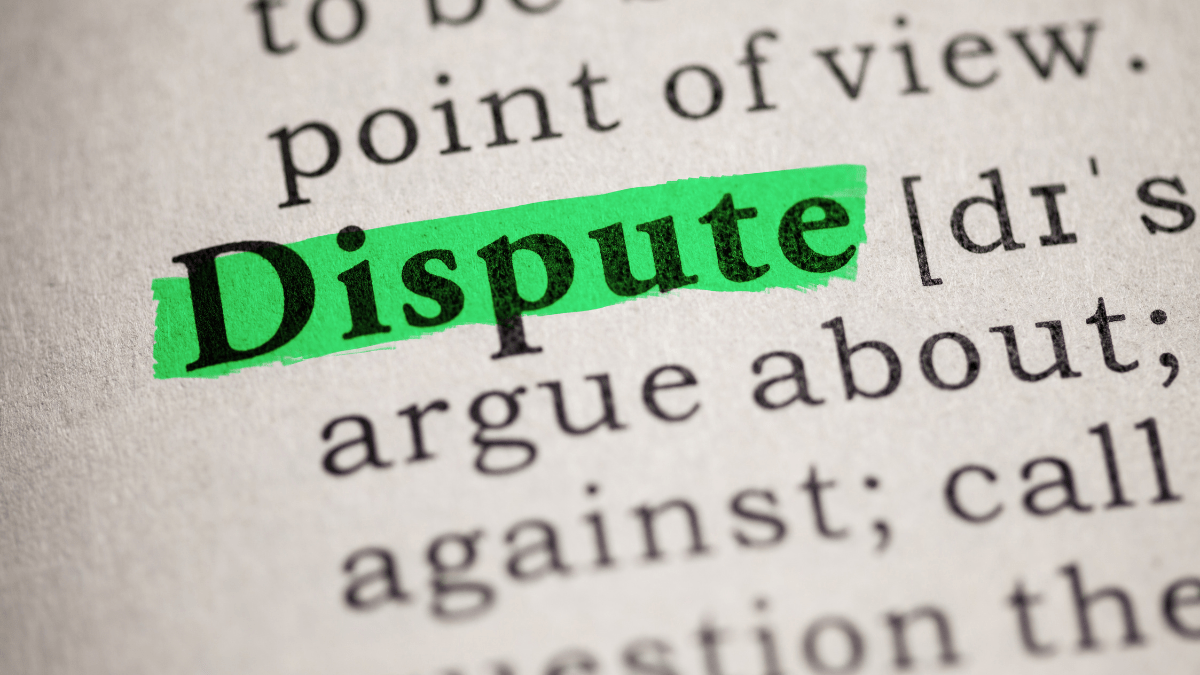
Your Guide to Business Disputes
Business disputes are an inevitable reality for many companies, large or small. These conflicts can arise from various circumstances, such as contract disagreements, partnership disputes, or intellectual property conflicts.
Unresolved disputes can have a significant impact on businesses, potentially leading to financial losses, damaged reputations, and strained relationships.
In this guide, Harry Suleman Solicitors will provide an overview of common business disputes, steps to minimise them, strategies for resolving disputes amicably, and when litigation becomes necessary.
What Is a Business Dispute?
A business dispute refers to a conflict or disagreement that arises between two or more parties related to their business activities.
Such disputes can arise from various sources, including contractual breaches, partnership disagreements, shareholder conflicts, issues with suppliers or customers, intellectual property disputes, employment disputes, etc.
Understanding Common Business Disputes
There are several types of disputes that commonly occur in the business world. Contract disputes, for example, occur when parties involved in a contract fail to fulfil their obligations.
Partnership disputes can arise from disagreements over decision-making, profit distribution, or breaches of partnership agreements.
Intellectual property disputes can involve issues like trademark infringement, copyright violations or trade secret theft.
It is crucial for businesses to be aware of these potential conflicts and take proactive steps to address them.
Who Are The Parties in a Business Dispute?
The parties involved in a business dispute can vary depending on the nature of the conflict and the specific circumstances.
Here are some common parties that may be involved in a business dispute:
- Business Entities: This includes corporations, partnerships, limited liability companies, sole proprietorships, and other types of businesses. Disputes may arise between different businesses or within the same business entity, involving owners, shareholders, or members.
- Individuals: Individual business owners, directors, executives, employees, contractors, customers, suppliers, competitors, or other stakeholders can be parties to a business dispute. Disagreements may arise over contracts, employment matters, intellectual property rights, or other business-related issues.
- Government Agencies: Businesses may be involved in disputes with government agencies over regulatory compliance, licensing, permits, tax matters, environmental issues, or other legal requirements.
- Third Parties: Sometimes, disputes involve parties who are not directly affiliated with the business but have a significant impact on the outcomes. These could include insurance companies, investors, creditors, customers, or industry regulators.
Identifying the parties involved in a business dispute is essential for understanding the dynamics of the conflict and determining the best approach to resolving it.
Steps to Minimise Business Disputes
While it may be impossible to avoid conflicts entirely, Harry Suleman Solicitors recommends that businesses take several preventative measures to minimise the risk of disputes.
- Clear and well-drafted contracts, including detailed terms and conditions, can help prevent misunderstandings and ambiguities.
- Effective communication within the company, as well as with clients, suppliers, and business partners, is essential to ensure everyone has a shared understanding of expectations.
- Transparent and ethical business practices also contribute to mitigating disputes by building trust and reducing the chances of misinterpretation or misconduct.
- Establishing clear policies and procedures in place can help set standards for behaviour, decision-making, and conflict resolution within the organisation. Clearly outlining processes for addressing grievances, reporting misconduct, and handling disputes can provide employees with a roadmap for resolving issues in a fair and consistent manner.
By implementing these preventative measures, businesses can create a culture of collaboration, accountability, and respect that helps mitigate the risk of disputes and promotes a harmonious work environment.
Resolving Business Disputes Amicably
In many cases, resolving disputes amicably through alternative dispute resolution methods can be a preferable option.
Negotiation, for instance, allows parties to engage in discussions to find common ground and reach a mutually acceptable agreement.
Mediation involves a neutral third-party mediator who assists in facilitating communication, encouraging compromise, and promoting creative solutions.
Arbitration provides a more formal process where an arbitrator, or a panel of arbitrators, hears each side’s arguments and renders a binding decision. These methods can be less time-consuming and more cost-effective than traditional litigation, and they often help maintain business relationships.
When Litigation Becomes Necessary
Despite efforts to resolve disputes amicably, there are situations where litigation becomes necessary. Litigation involves taking the dispute to court, where a judge or jury will decide the outcome based on evidence and applicable laws.
In some cases, litigation may be unavoidable, such as when parties are unwilling to negotiate or when there is a need for legal precedent. It’s important to be prepared for the complexities and costs associated with litigation, including legal fees, court processes, and potential damage to business relationships.
Seeking Legal Assistance
Dealing with business disputes can be complex and demanding. Seeking legal assistance from experienced business dispute solicitors is advisable, especially when the stakes are high or legal complexities arise.
At Harry Suleman Solicitors, we can provide guidance on the best course of action, including representing your interests during negotiation, mediation, arbitration, or litigation.
We will analyse contracts, provide legal opinions, and help you navigate the legal landscape, ensuring your rights and interests are protected throughout the dispute resolution process.
Get Business Dispute Help From Harry Suleman Solicitors
In the face of business disputes, it is crucial to have the support of experienced legal professionals who can guide you through the complexities and protect your interests. Harry Suleman Solicitors can provide the expertise and guidance you need.
Don’t let business disputes hinder your company’s success. Contact Harry Suleman Solicitors today for the professional assistance you need to effectively navigate and resolve your business disputes.
